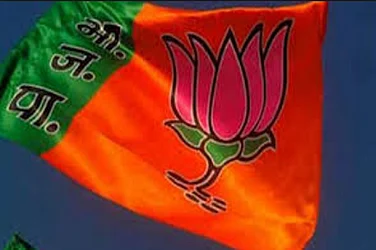Cleanup Hope
There's hope, at last, for cleaner air in Kolkata. Thanks not to a reformed state administration, but judicial intervention. The Calcutta High Court's strict ruling to de-register public vehicles that are more than 15 years old (this would mean 24,000 of the 40,000-odd smoke belching taxis and 8,400 of the 14,000-odd polluting buses going off the roads by March 31 next year), convert the 80,000-odd auto-rickshaws to CNG/LPG by December next year and scrapthe ones running on two-stroke engines by this year-end, prevent sale of adulterated fuels and lubricants and strictly monitor emission testing centres has come as agodsend for Kolkatans choking on the noxious air that we inhale.
These measures ought to have been taken a long time ago and that it required the High Court to intervene in what is an administrative matter speaks volumesfor the apathy of the state administration towards a matter of grave public importance. For too long, the state government—rather, the CPI(M), since the administration is an extension of the ruling party in Bengal—had placed the interests of a few thousand taxi, bus, truck and auto-rickshaw drivers above that of millions of suffering citizens and it was time this came to a halt. There is no way vehicular emission can be justified in the name of protecting the livelihood of drivers of polluting vehicles. It is now for the state government to implement the High Court's order in letter and spirit instead of looking for ways to circumvent it.
The Roadblock
But the High Court order notwithstanding, there is one major roadblock in the way—the CITU. That this irresponsible, venal, regressive and militant organisation will try its best to scuttle moves to implement the HC ruling was evident on the day the ruling was delivered. A couple of hundred auto-drivers blocked an arterial road in South Kolkata to protest a drive by police and motor vehicles department to seize illegal auto-rickshaws. The officers seized 25 autos that were plying without any valid documents, save for a 'permit' issued in gross violation of the law of the land by the CITU, and hauled them away to a government bus depot. The rogue auto-drivers attacked the bus depot, damaged government buses parked there and forced the police to release the seized autos.
Senior CITU and CPI(M) leaders later defended the auto-drivers, saying the police manhandled them and that they (the auto-drivers) had families to feed and, hence, should not be stopped from plying their autos, even if illegally! Two days later, this incident repeated itself at Salt Lake and, here too, CITU leaders defended the rogue auto drivers. They even demanded that the police inform the CITU and seek its permission before launching any drives against illegal autos. One CITU leader went as far as demanding that the permits issued by the CITU be accorded legal sanction! Given this propensity of the CITU to back rogue drivers of public transport vehicles, it would be difficult to get the polluting vehicles off Kolkata's streets.
The Gameplan
Though transport minister Subhas Chakraborty, whose opposition till date to many attempts to crack down on polluting vehicles is well-known, has promised to implement the High Court order, I'd take his assurance with a large pinch of salt. There is little doubt that Chakraborty, and his CITU friends, would try their best to sabotage a thorough cleanup. There are reports that they're backing a move by bus, taxi, truck and auto-rickshaw operators to appeal against the High Court order and go up to the apex court, if necessary, to get this week's order overturned. This, they realise, would only be a delaying tactic since the Supreme Court's views on vehicular pollution, and its orders to crackdown on polluting vehicles, is well-known. Chakraborty and the CITU realise that they can delay this issue by a couple of years at the most, but at the end of the day, there's no way the Supreme Court would be sympathetic to those who run smoke-belching vehicles.
The next step, then, would be to organise massive resistance to government's drives to implement court orders against polluting vehicles. CITU-backed drivers of buses, taxis, trucks and autos would block roads regularly, stage violent demonstrations and resort to other acts, thus giving the Marxist-run state government a reason to plead before the Courts that carrying out these drives against polluting vehicles was becoming a grave law and order issue and, hence, needs to be either abandoned or implemented very slowly and cautiously. This would effectively halt, perhaps permanently or at least till Bengal is under the overwhelming influence of the CITU and the CPI(M), the efforts to clean up Kolkata's air. I fear this is what's going to happen ultimately.
Villainous Act
Talking of the CITU, this organisation's predilection for acting against the interests of the city and its residents has assumed gigantically evil proportions. From backing drivers and operators of polluting vehicles, unruly employees of industrial units and business houses to supporting vendors who take over pavements and promoters who fill up waterbodies, the CITU does it all. Park Street is the latest to come under the CITU's evil eye—it took huge sums from vendors to allow them to set up stalls at this premier address.
There had always been a consensus between street vendors and the civic authorities that this thoroughfare, lined with famous eateries and shops, would be kept a 'hawker-free' zone. But the CITU, forwhom its own narrow and venal interests are more important than maintaining the beauty of the city, broke this consensus. It encouraged fifty-odd vendors selling everything from sweets to pirated CDs and second-hand garments to set up ugly stalls on the wide pavements lining Park Street, leaving very little space for pedestrians and forcing the latter to walk on the busy road at great risk to limb and life. Earlier this week, police and civic officials swooped on Park Street and evicted these vendors.
Ever since, the CITU has been up in arms, backing the evicted vendors and justifying their occupation of the pavement. They have to earn their livelihood and feed their families, the CITU asserts. And no road, not even Park Street, ought to be kept out of bounds for hawkers. Till the time of writing this, the police have foiled attempts by the hawkers to get back to Park Street. But given the CITU's clout and malevolence, it is doubtful how long they can resist. And once these 50-off vendors are back, it'll only be a matter of time before the once-beautiful Park Street—and serious efforts are currently under way to restore the area to its former glory—is made ugly, non-descript and hideous like all other streets of this city.
No Logic
There is no logic in the CITU's—or, for that matter, many other individuals' and organisations'—stand that vendors ought to be allowed to take over pavements since they have families to feed. Or that illegal autos or polluting buses ought to be allowed to ply since their drivers (and their families) would otherwise starve to death. First, there is the small matter of the law that makes such acts illegal. It is illegal to occupy a pavement (constructed with taxpayers' money, mind you, and not CITU or CPI-M funds) or ply a vehicle without a permit or one whose emission is above the permissible limits.
Laws are required to govern society and without laws, there would be anarchy. Yes, laws need to be changed to cater to the greater and common good. But the laws on pavements or vehicular pollution or ones making it mandatory for all vehicles to obtain permits to ply on the roads are for the common and greater good and need no changes or alterations. If anything, they need to be made stricter and harsher for violators.
The primary problem is that the CITU finds all these street vendors and drivers of illegal and polluting autos, taxis, buses and trucks, or the work-shirking and militant employees of a private establishment ready vote banks. The CITU encourages irresponsible behaviour because it stands to gain from such behaviour. It needs these unruly, anti-social and rogue elements in its ranks to enforce its writ on society. It is all part of the bigger picture of communists encouraging and actively promoting chaos in what they see is a bourgeois order.
That is why the CPI(M) encourages migration from Bangladesh—these illegal migrants become auto drivers and street vendors. And if illegal migrants from Bangladesh can stake a claim to Kolkata's pavements or roads, how can those from neighbouring states like Bihar, UP and Jharkhand be denied the same 'privilege' by the CPI(M) and CITU? Just because these migrants—illegal from Bangladesh and legal from other states--are poor doesn't mean Kolkatans have to put up with their flouting the laws or that they be allowed to occupy pavements and ply autos illegally. Many ofthem are criminals, too; will the CITU then defend a burglar's or pickpocket's right to livelihood on the plea that he has a family to feed?
Silver Lining
There's a bit of good news amidst all this CITU-inspired gloom. St James' School, one of the city's premier educational institutions, has initiated a laudable exercise to get its students to teach their house-helps. Students between Classes 2 and 4 had been asked to teach their servants at home basic alphabets and arithmetic that they themselves learnt earlier on in school. Last week, 45 such domestic helps—young and old, man and woman—trooped to the school to take a basic test of their skills. The school gave away certificates to them and have pledged to carry on with this programme. St James' plans to educate these domestic helps till the primary level in this informal manner and then enroll them at its evening school for higher studies. This is a very laudable venture that needs to be emulated by other schools as well. It is not just the domestic helps who benefit—the students also do since they stand to learn the values of charity, social responsibility, egalitarianism and loving, caring and sharing.






















